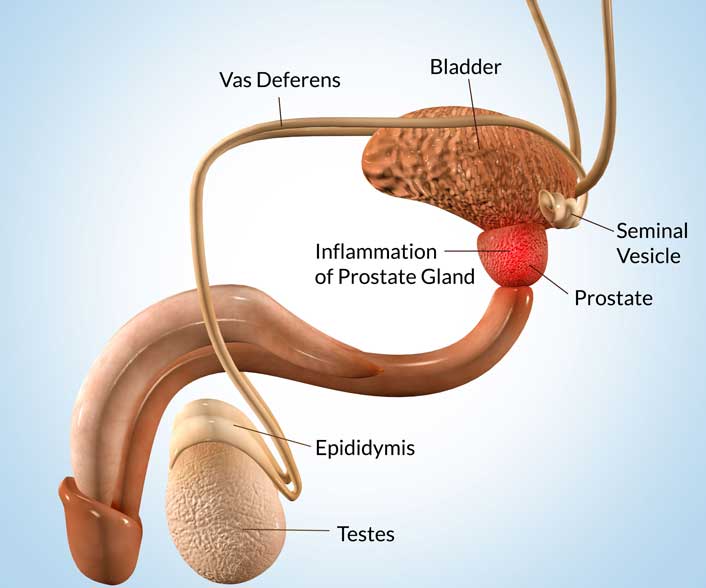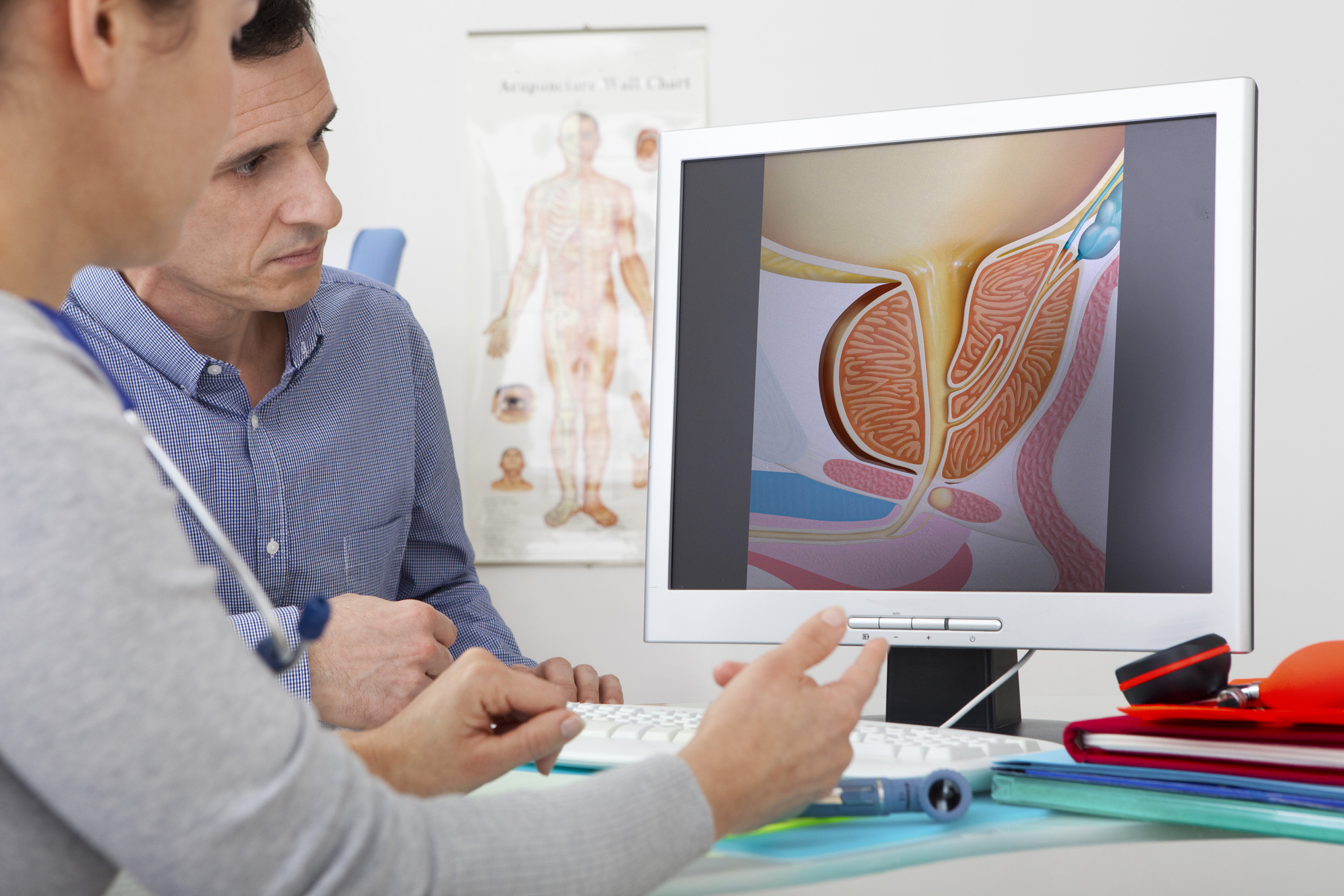Made Stress-Free Reliable Hassle-Free Convenient Pocket friendly
Request a call back
The surgery you need is
just a click away


21K +
Consultations

1180
Surgeries

100+
Partner Hospitals

10000+
Hassle-free Consultation

5000+
Smooth surgeries

500+
Expert Doctors

100+
Trusted hospitals

Affordable Prostate Enlargement in Mumbai
BPH or enlarged prostate can cause problems passing urine and incontinence. Our urologists in Mumbai offer Minimally Invasive BPH Treatments including TURP, TUIP, TUMT and laser procedures (such as PVP, ThuLEP and HOLEP). Consult the best BPH doctor for a free consultation.
Call Us
6366-527-898
- 40 min procedure
- Keyhole Surgery
- Complete Insurance Support
What is BPH?
Benign prostatic hyperplasia (BPH) refers to urinary issues due to enlarged prostate. It is a common disorder in men who are generally over 60 years. While some people choose to ignore the symptoms of an enlarged prostate, it can cause severe complications such as kidney damage, urinary retention (inability to pass urine), etc. Therefore, enlarged prostate treatment becomes necessary. Aapka Care has some of the best BPH doctors in Mumbai with an average experience of more than 15 years. Our highly reputed doctors provide private and comprehensive consultation for your enlarged prostate (BPH) treatment in Mumbai. Call us to book a FREE online or offline consultation with the best BPH doctor near you.


Overview
- BL23 (ShenShu)
- BL28 (Pang Guang Shu)
- BL32 (Ciliao)
- BL33 (Zhang Liao)
- Bladder stones
- Kidney damage
- Bladder damage
- Urinary tract Infection
- Sudden inability to urinate
- Obesity
- Diabetes
- Heredity
- Age factor
- Erectile dysfunction
- Soda
- Coffee
- Alcohol
- Saturated fats
- Caffeinated beverages
- Free cab pick-up & drop
- USFDA and advanced BPH treatment
- No cost EMI
- Free follow ups post surgery
- Covid free hospital, doctors and staff
Enlarged Prostate Treatment in Mumbai
Diagnosis of Benign prostatic hyperplasia (BPH):
The diagnosis for an enlarged prostate involves a combination of physical examination and diagnostic tests to confirm BPH. Since heredity is a risk factor for BPH, the doctor will analyze your family history report. The doctor recommends the following tests to rule out the possibility of enlarged prostate due to other conditions. Some of the diagnostic tests include –
- Ultrasound – Doctors generally recommend an ultrasound of the prostate gland to detect any abnormal growth within the prostate using 3D imaging. This test helps determine the amount of enlargement around the prostate.
- Prostate-specific antigen (PSA) blood test – Doctors usually recommend a PSA blood test to check for any increased PSA levels in case of enlarged prostate. This helps the urologists to detect signs of prostate cancer.
- Urinary flow test – This test is done to measure the strength and amount of your urine flow and determine if the condition is stable or getting worse with time.
- Postvoid residual volume test – Sometimes, when the patient is unable to empty the bladder completely, this test is recommended to measure the amount of urine left in your bladder after the urination. This is done via ultrasound or inserting a catheter into the bladder.
- 24-hour voiding diary – The doctors recommend this test to record the frequency and amount of urine expelled, especially if more than one-third of your daily urinary output occurs at night.
- Urine test – The doctor analyzes a sample of your urine to rule out any signs of infection or other conditions that can lead to similar symptoms.
- Blood tests – Blood tests indicate any infections in the kidneys and indicate abnormal functioning.
In case of moderate or complex cases, the doctor may recommend the following diagnostic tests –
- Digital rectal exam – The doctor inserts a finger into your rectum to check for any signs of prostate enlargement.
- Cystoscopy – A light, flexible scope called a cystoscope is inserted into your urethra to allow the doctor to see inside your bladder.
- Prostate biopsy – The doctor uses needles guided by a transrectal ultrasound to take a tissue sample of the prostate and analyze the tissue to rule out the chances of prostate cancer.
- Urodynamic and pressure-flow studies – This test measures the bladder pressure and determines how well your bladder muscles work using a catheter that is inserted through your urethra.
Best Treatment for Enlarged Prostate
There are several surgical as well as non-surgical methods for BPH treatment which include various medications, dietary changes, and lifestyle modifications. However, non-surgical methods such as medications, home remedies, etc are effective to manage the symptoms of BPH and surgical treatment is the only method to treat enlarged prostate.
Minimally invasive surgeries – These surgical techniques involve minimal invasion that can often be done as outpatient surgery, meaning the patient may not require a hospital stay. Recovery is generally quicker, but it depends on the medical condition of the patient and the surgical expertise of the surgeon. Minimally invasive techniques such as TURP, TUIP, etc., help the patients relieve symptoms quickly and may nullify the need for medications. Minimally invasive procedures are recommended in case of the following situations-
- Your symptoms are moderate to severe
- Medications are ineffective
- Chronic urinary tract obstruction, bladder stones, or blood in your urine
- Preference of the patient
Based on these conditions, there are different techniques to perform minimally invasive procedures-
- Transurethral Resection of the Prostate (TURP)- This technique uses a light scope called a resectoscope. It is inserted into the urethra through the penis. TURP uses electric current or laser light to remove the outer tissue of the prostate. The patient is generally under the influence of anesthesia to ensure a painless procedure. The resectoscope provides light, irrigating fluid, and an electrical loop that cuts the tissues and seals the blood vessels. Finally, the removed tissue is expelled out of the body through a catheter.
- Transurethral Incision of the Prostate (TUIP)- TUIP is used to widen the urethra in case the size of the prostate is not significant but causes blockage. After the patient is administered with general anesthesia, the surgeon inserts a light scope to cut the tissues around the prostate gland to release the pressure of the prostate on the urethra. The patient generally finds it easier to urinate after the procedure. The surgeon may choose to leave the catheter in the bladder for a day or two after the surgery to drain the bladder.
- Transurethral microwave thermotherapy (TUMT)- In this procedure, the urologist inserts a catheter through the urethra to reach the prostate. An ‘antenna’ then sends microwaves through the catheter to heat the parts of the prostate that destroys the enlarged tissues to ease the flow of the urine. The surgeon uses a cooling system around the urinary tract that protects it from heat damage. TUMT is a low-risk procedure that may take time before the patient notices any results.
- Prostatectomy- This surgery aims to remove the entire prostate gland with either laparoscopic or robot-assisted technique. The surgeon makes an incision in your lower abdomen to reach the prostate and remove the surrounding tissues. It is generally done for very large prostate or other complicating factors. However, it has long-term benefits that may require a few days hospital stay after the surgery depending on the medical condition of the patient.
Laser surgeries – These are advanced surgeries that use high-energy lasers to destroy or remove the tissues around the enlarged prostate. Patients who undergo laser therapy procedures often feel instant relief. Moreover, laser surgeries have a lower risk of side effects than minimally invasive surgeries. Some of the advanced laser techniques for laser BPH procedures are-
- Photoselective Vaporization (PVP) – PVP is an advanced method to vapourize prostate tissues using a high-powered laser. It is an outpatient procedure which means the patient can go home on the same day of surgery after consulting with the doctor. This method causes minimal blood loss and the patient can recover quickly to resume his daily routine.
- Holmium Laser Enucleation of Prostate (HOLEP) – In this procedure, the urologist inserts a thin, tube-like instrument called a resectoscope through the penis and into the urethra. A laser is used to destroy the excess prostate tissue without the need for any incision or cuts. The patient is administered with general anesthesia for a painless procedure. The surgeon may choose to use a catheter which is usually removed the next day of the surgery.
- Thulium Laser Enucleation of the Prostate (ThuLEP) – This is a similar procedure to HOLEP, except for the difference in the type of laser used. The surgeon inserts a resectoscope through the penis and into the urethra. A laser inserted into the resectoscope that destroys the enlarged prostate to reduce the pressure on the urethra. There are no incisions and the patient is administered with general anesthesia before the surgery for a painless procedure.
Medication for Prostate Enlargement:
- BPH Medications – Doctors generally prescribe medications to treat men with mild to moderate symptoms of BPH. These medicines ease the symptoms by calming the muscles in the prostate and bladder. However, there may be some side effects related to corresponding medications depending on the condition and severity of the disease. Some categories of medications prescribed by the doctor for BPH include-
- Alpha-Blockers
- 5-Alpha Reductase Inhibitors [5-ARIs]
- Tadalafil (Cialis)
You can visit our best Prostate Surgeons in Mumbai and Mumbai.
How to prepare for BPH surgery?
Surgical procedures for BPH can be a strange experience for people. Surgeries can be stressful for the patient, but if the patient knows what to expect, it becomes easier for them emotionally and mentally. Here are some tips that can help you prepare for the surgery –
- Inform your doctor about any ongoing medications and health conditions before the surgery.
- It is also important to make your doctor aware of your history of allergies related to anesthesia.
- Stop smoking tobacco a week before the BPH procedure.
- Consult your doctor before taking medications as they can hinder the outcomes of the surgery
- Patients must not eat or drink 8 to 9 hours prior to the surgery as it can delay the effects of anesthesia.
Complications of prolonged BPH
Enlarged prostate is a serious medical condition that can lead to several health problems in men above 50 years of age. There are several risks and complications that can result due to prolonged BPH. Therefore, it is important to consult your doctor as soon as you experience symptoms of enlarged prostate. Possible complications of BPH are-
- Sudden inability to urinate
- Urinary tract infections
- Kidney stones
- Bladder damage
- Kidney damage
Post-operative care after BPH surgery
The recovery from enlarged prostate surgery can vary depending on the patient’s health condition and the surgical expertise of the surgeon. The post-recovery tips provided by the doctor also depend on the type of surgical technique used for the procedure. However, it is important to consult with your doctor regularly to avoid any complications and ensure a faster recovery. Some of the post-operative care after your BPH surgery are-
- Do not lift heavy equipment for around a week after your surgical procedure.
- Restrict heavy exercises for about 6 weeks after prostatectomy.
- Drink plenty of fluid during the first 2 weeks after the surgery to flush any new bleeding from the bladder.
- Avoid alcohol and coffee for the first few weeks after the procedure
- Avoid food that can cause constipation or force you to strain during bowel movements.
Advantages of choosing Aapka Care for BPH surgery.
Aapka Care is associated with a few of the best hospitals and multi-speciality hospitals across the country. We aim to ease the process of accessing all urological surgeries for every patient at affordable costs. Our urologists are highly qualified to perform advanced surgeries with a success rate of over 95%. The advantages of choosing Aapka Care for enlarged prostate surgeries are –
- Highly experienced urologists– We have a team of highly skilled urologists with years of experience performing complex surgeries like TURP and HOLEP with great precision. Our surgeons are fully trained to perform surgeries using cutting-edge technology for a very high success rate. In addition, doctors at Aapka Care offer comprehensive treatment to all our patients, guide them through the procedure, and make them aware of the risks involved during the surgery.
- Insurance approval– ENT diseases are covered under insurance if they are deemed medically necessary. However, the insurance approval depends on the type of your insurance policy and the terms and conditions set by the insurance provider.
- Flexible payment options– Aapka Care offers various modes of payment for different surgeries at no cost EMI. In addition, we accept credit cards and cash payments for the procedure.
- Private consultation: Aapka Care provides private consultations and procedures without sharing your identity or medical information with any third party or individual during or after the course of the procedure.
- Free pick-up and drop facility– Aapka Care provides free cab services for pick-up and drop-off to each patient within the city on the day of surgery.
- Free follow-up consultation– Aapka Care provides free follow-up consultation along with proper diet charts to all patients after their surgery for a fast and smoother recovery.
- COVID-19 safe environment – Aapka Care ensures proper sanitization of all operation theatres and clinics before each surgery to curb the spread of COVID. It is our top priority to maintain excellent hygiene and social distancing while providing a seamless patient experience.
